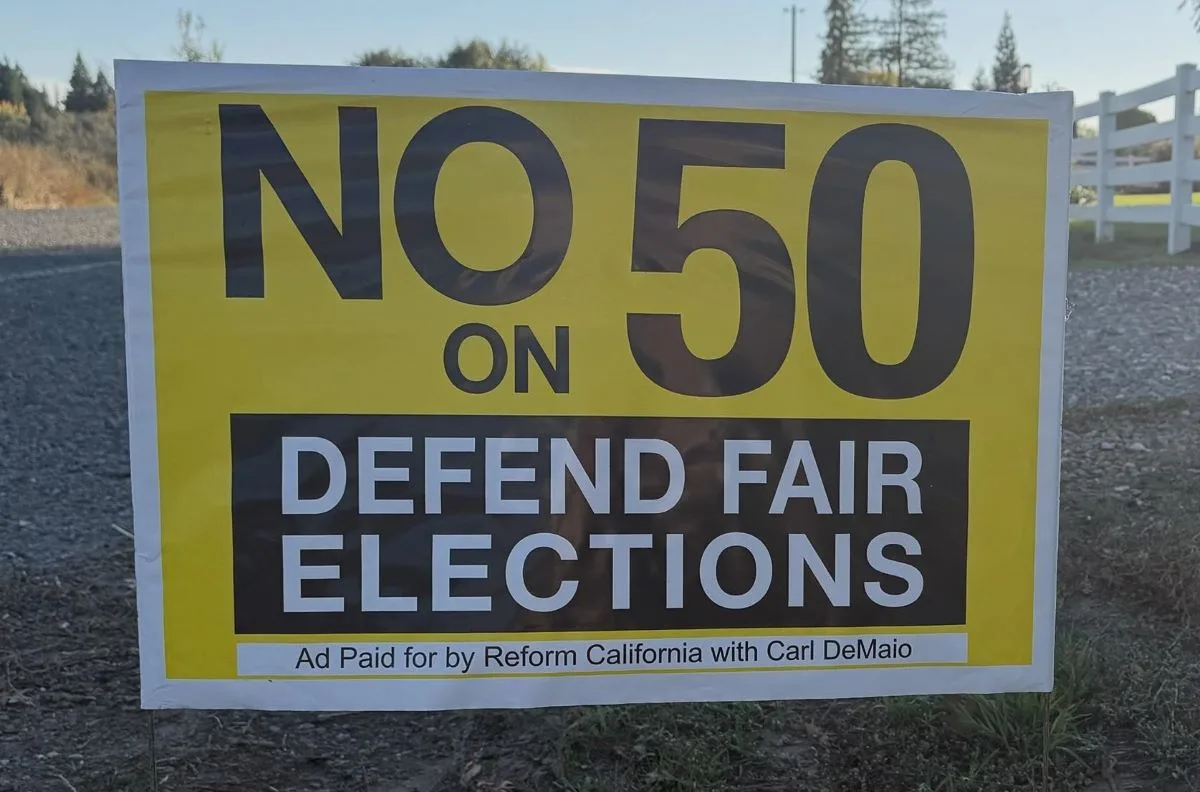A new federal lawsuit filed in the U.S. District Court for the Central District of California challenges the constitutionality of California’s recently adopted congressional district map under Proposition 50.
The plaintiffs include individual voters from across the state and the California Republican Party. They are suing Governor Gavin Newsom and Secretary of State Shirley Weber, alleging that the new map violates the Fourteenth and Fifteenth Amendments of the U.S. Constitution.
The Core Issue: Racial Gerrymandering
The complaint argues that California’s Legislature engaged in racial gerrymandering when it drew new congressional district lines for the 2026, 2028, and 2030 elections. According to the lawsuit:
- The Legislature intentionally used race—specifically Latino demographics—as a predominant factor in designing district boundaries.
- Sixteen districts were allegedly drawn to favor Latino voters, increasing the number of so-called “Voting Rights Act districts” from 14 to 16.
- The plaintiffs claim this was done without evidence that such race-based districting was legally required under the Voting Rights Act (VRA).
Why Plaintiffs Say It’s Unconstitutional
Under Supreme Court precedent, states cannot separate voters into districts based on race unless they have a compelling reason supported by evidence, such as remedying a proven VRA violation. The lawsuit asserts:
- California had no evidence that Latino voters were unable to elect their preferred candidates under the existing map.
- Latinos are the largest demographic in California and have successfully elected candidates statewide and in Congress.
- The rushed legislative process lacked transparency and skipped procedural safeguards, with no district-specific VRA analysis provided.
What Is Proposition 50?
Proposition 50 was a ballot measure passed on November 4, 2025, allowing the Legislature to replace the congressional map drawn by the independent Citizens Redistricting Commission in 2021. The plaintiffs argue this mid-decade redistricting violates California’s own constitutional rules, which limit redistricting to once per decade after the census.
Legal Claims
The lawsuit brings three main claims:
- Equal Protection Clause (14th Amendment): Race was the predominant factor in drawing district lines, without lawful justification.
- Fifteenth Amendment: The map abridges voting rights by intentionally favoring one racial group.
- Specific Challenge to District 13: Allegedly drawn with race as the primary criterion, despite already being majority Latino.
What Plaintiffs Want
They seek:
- A court order invalidating the Proposition 50 map.
- An injunction preventing its use in future elections.
- Attorneys’ fees and costs.
Political Context and Potential Impact on California Elections
The lawsuit challenging Proposition 50 comes amid a highly charged political environment in California. Prop 50, approved by voters, redraws five congressional districts to favor Democrats, a move that could significantly influence the balance of power in the U.S. House during the 2026 midterms. Supporters, including Gov. Gavin Newsom and national Democratic leaders, framed the measure as a response to Republican-led redistricting efforts in states like Texas, which were designed to secure GOP gains.
Republicans argue that Prop 50 amounts to unconstitutional gerrymandering and racial bias in district design, and their legal challenge seeks to block the new maps before they take effect. If successful, the lawsuit could preserve the current district boundaries, limiting Democratic opportunities to flip seats and potentially affecting which party controls Congress.
Beyond California, the outcome may set a precedent for other states considering mid-decade redistricting. A court ruling against Prop 50 could embolden challenges to similar measures nationwide, while an affirmation of the maps could encourage more aggressive partisan redistricting strategies. With the House majority razor-thin, every seat matters, making this legal battle a focal point in the broader struggle over election fairness and representation.

